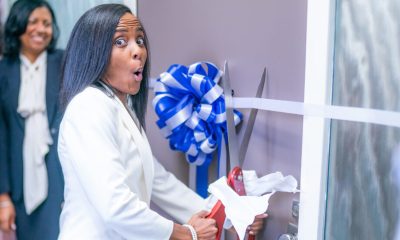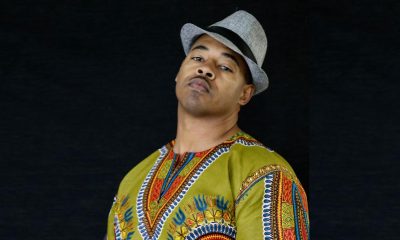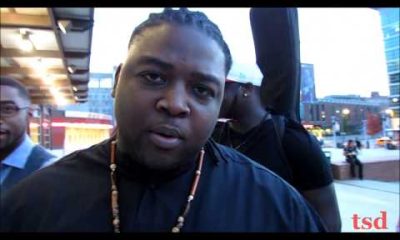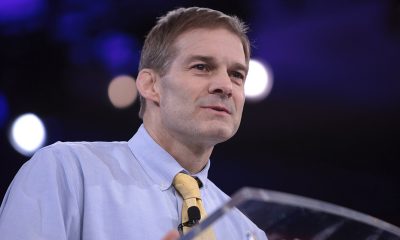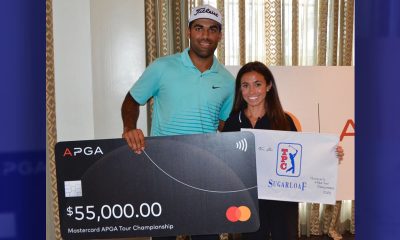#NNPA BlackPress
Dr. Rosie Phillips Davis draws upon ‘real story’ to lead American Psychological Association
NNPA NEWSWIRE — Dr. Rosie Phillips Davis is the second African-American woman to lead the APA. The gavel was passed to her from Jessica Henderson Daniel, PhD, who holds the distinction of being the first African-American woman to lead the association.
By Dr. Sybil C. Mitchell, Special to The New Tri-State Defender
It’s not that Dr. Rosie Phillips Davis (formerly Bingham) feels she doesn’t appreciate news outlets all over the nation writing about her life and work. It’s just that that everyone keeps missing the real story.
So what is the real story?
“The real story is that I am a product of the public school system,” says Davis, who serves as the 2019 president of the American Psychological Association (APA). “I attended public schools and graduated from high school equipped and prepared to pursue higher learning.
“I appreciate all the coverage – an African-American woman leading the nation’s premiere organization of psychology professionals. That, certainly, is noteworthy. But the real story is that I am a product of public schools.”
Davis is a proud Manassas High School graduate – one of those “I bleed blue and gold” Manassas Tigers.
She is the second African-American woman to lead the APA. The gavel was passed to her from Jessica Henderson Daniel, PhD, who holds the distinction of being the first African-American woman to lead the association.
For Davis, hard work, resilience and determination are hallmarks of her career. Several aspects of her childhood and personal life are intriguing and worthy, to be sure, of a closer look.
Dr. Davis is 69. She is thankful to be 69 and has never been ashamed of her age.
“There were 12 of us, and I was in the middle. Two boys and two girls who were older and one younger brother have all passed away. As I approach the age when they were passing away, it just makes me more thankful to still be here,” she said.
And then, there was the name change – from Bingham to Davis. Actually, she has been “Mrs. Davis” all along.
“I am not any relation to anyone named ‘Bingham.’ I was married briefly, for four years, when I was just starting out in my career. I had been publishing under “Bingham,” and I just thought it would be wise to keep that as my professional name. I was young, and I just didn’t know.
“After I left the University of Memphis post as vice president of Student Affairs, I just thought I would go ahead and change my name to Davis. So now, everybody in the house is named ‘Davis.’”
When Rosie Phillips was born, the family lived on Fallback Plantation. “Fallback” was one word as she remembers it – a curious name for a plantation, she admits. Her father was a sharecropper, and her grandparents were sharecroppers as well, all working the same land. Everyone lived on that same plantation in Scott, Miss. in Bolivar County.
Her mother dreamed of a better life for her children. Dr. Davis moved to Memphis when she was four.
“Some of my siblings remained there on the plantation with my grandmother,” she explains. “Some of us had different mothers.”
So, Davis moves to Memphis and gets her early education in public schools. After graduating Manassas, she attended Elmhurst College in Elmhurst, Ill. With a double-major bachelors degree in sociology and education, she earned a masters in counseling and guidance as well as a doctorate in counseling psychology from Ohio State University.
Today, Dr. Davis is a well-respected psychologist who has committed much of her career to an examination of “deep poverty” and its effects on those who experience it, as well as others’ perceptions of people on the outside looking in.
As APA president, Davis’ “Initiative on Deep Poverty” will use psychological science as a catalyst to help change victim-blaming behavior and redirect the focus on changing structures that perpetuate deep poverty.
Davis will focus on three areas to change the perceptions of poverty:
- Collaborate with experts in the psychological science of poverty to better understand the links between poverty health challenges, both physical and mental.
- Raise awareness about the attitudes toward those who live in poverty and what psychological science purports about those living in deep poverty.
- Elevate the role of psychology in addressing societal issues rooted in poverty by changing the narrative surrounding it and the policies that contribute to it.
A compassionate advocate and practitioner, Davis believes that “injecting psychological science into the discussions around deep poverty can make a difference in the way we talk about this issue and how we write legislation to end deep poverty.”
Prior to taking the helm of the APA, Davis served on the American Psychological Association Board of Directors and is past president of the Society of Counseling Psychology. She sat on the editorial boards of several journals, is author of numerous articles and book chapters on career counseling, and has co-edited two books. She is a co-founder of the National Multicultural Conference and Summit.
She is a founding member of the Women’s Foundation for a Greater Memphis, whose Vision 2020 Strategic Plan is focused on reducing poverty by five percent in ZIP code 38126, the poorest in the state and one of the poorest in the country.
#NNPA BlackPress
IN MEMORIAM: Ramona Edelin, Influential Activist and Education Advocate, Dies at 78
NNPA NEWSWIRE — Born on September 4, 1945, in Los Angeles, California, activist Ramona Edelin’s early years were marked by a commitment to education and social justice. According to her HistoryMakers biography, after graduating from Fisk University with a Bachelor’s degree in 1967, she pursued further studies at the University of East Anglia in England. She earned her master’s degree before completing her Ph.D. at Boston University in 1981.
The post IN MEMORIAM: Ramona Edelin, Influential Activist and Education Advocate, Dies at 78 first appeared on BlackPressUSA.

By Stacy M. Brown, NNPA Newswire Senior National Correspondent
@StacyBrownMedia
Once upon a time, Black Americans were simply known as colored people, or Negroes. That is until Ramona Edelin came along. The activist, renowned for her pivotal roles in advancing civil rights, education reform, and community empowerment, died at her D.C. residence last month at the age of 78. Her death, finally confirmed this week by Barnaby Towns, a communications strategist who collaborated with Dr. Edelin, was attributed to cancer.
Born on September 4, 1945, in Los Angeles, California, Edelin’s early years were marked by a commitment to education and social justice. According to her HistoryMakers biography, after graduating from Fisk University with a Bachelor’s degree in 1967, she pursued further studies at the University of East Anglia in England. She earned her master’s degree before completing her Ph.D. at Boston University in 1981.
Edelin’s contributions to academia and activism were manifold. She was pivotal in popularizing the term “African American” alongside Rev. Jesse L. Jackson in the late 1980s.
Jackson had announced the preference for “African American,” speaking for summit organizers that included Dr. Edelin. “Just as we were called Colored, but were not that, and then Negro, but not that, to be called Black is just as baseless,” he said, adding that “African American” “has cultural integrity” and “puts us in our proper historical context.”
Later, Edelin told Ebony magazine, “Calling ourselves African Americans is the first step in the cultural offensive,” while linking the name change to a “cultural renaissance” in which Black Americans reconnected with their history and heritage.
“Who are we if we don’t acknowledge our motherland?” she asked later. “When a child in a ghetto calls himself African American, immediately he’s international. You’ve taken him from the ghetto and put him on the globe.”
The HistoryMakers bio noted that Edelin’s academic pursuits led her to found and chair the Department of African American Studies at Northeastern University, where she established herself as a leading voice.
Transitioning from academia to advocacy, Edelin joined the National Urban Coalition in 1977, eventually ascending to president and CEO. During her tenure, she spearheaded initiatives such as the “Say Yes to a Youngster’s Future” program, which provided crucial support in math, science, and technology to youth and teachers of color in urban areas. Her biography noted that Edelin’s efforts extended nationwide through partnerships with organizations like the National Science Foundation and the United States Department of Education.
President Bill Clinton recognized Edelin’s expertise by appointing her to the Presidential Board on Historically Black Colleges and Universities in 1998. She also co-founded and served as treasurer of the Black Leadership Forum, solidifying her standing as a respected leader in African American communities.
Beyond her professional achievements, Edelin dedicated herself to numerous boards and committees, including chairing the District of Columbia Educational Goals 2000 Panel and contributing to the Federal Advisory Committee for the Black Community Crusade for Children.
Throughout her life, Edelin received widespread recognition for her contributions. Ebony magazine honored her as one of the 100 Most Influential Black Americans, and she received prestigious awards such as the Southern Christian Leadership Award for Progressive Leadership and the IBM Community Executive Program Award.
The post IN MEMORIAM: Ramona Edelin, Influential Activist and Education Advocate, Dies at 78 first appeared on BlackPressUSA.
#NNPA BlackPress
Tennessee State University Board Disbanded by MAGA Loyalists as Assault on DE&I Continues
NNPA NEWSWIRE — Recent legislative actions in Tennessee, such as repealing police reform measures enacted after the killing of Tyre Nichols, underscore a troubling trend of undermining local control and perpetuating racist agendas. The new law preventing local governments from restricting police officers’ authority disregards community efforts to address systemic issues of police violence and racial profiling.
The post Tennessee State University Board Disbanded by MAGA Loyalists as Assault on DE&I Continues first appeared on BlackPressUSA.

By Stacy M. Brown, NNPA Newswire Senior National Correspondent
@StacyBrownMedia
Tennessee State University (TSU), the state’s only public historically Black college and university (HBCU), faces a tumultuous future as Gov. Bill Lee dissolved its board, a move supported by racist conservatives and MAGA Republicans in the Tennessee General Assembly, who follow the lead of the twice-impeached, four-times indicted, alleged sexual predator former President Donald Trump. Educators and others have denounced the move as an attack on diversity, equity, and inclusion (DE&I) and a grave setback for higher education.
Critics argue that TSU’s purported financial mismanagement is a manufactured crisis rooted in decades of underinvestment by the state government. They’ve noted that it continues a trend by conservatives and the racist MAGA movement to eliminate opportunities for Blacks in education, corporate America, and the public sector.
Gevin Reynolds, a former speechwriter for Vice President Kamala Harris, emphasizes in an op-ed that TSU’s financial difficulties are not the result of university leadership because a recent audit found no evidence of fraud or malfeasance.
Reynolds noted that the disbanding of TSU’s board is not an isolated incident but part of a broader assault on DE&I initiatives nationwide. Ten states, including Tennessee, have enacted laws banning DE&I policies on college campuses, while governors appointing MAGA loyalists to university trustee positions further undermine efforts to promote inclusivity and equality.
Moreover, recent legislative actions in Tennessee, such as repealing police reform measures enacted after the killing of Tyre Nichols, underscore a troubling trend of undermining local control and perpetuating racist agendas. The new law preventing local governments from restricting police officers’ authority disregards community efforts to address systemic issues of police violence and racial profiling.
The actions echo historical efforts to suppress Black progress, reminiscent of the violent backlash against gains made during the Reconstruction era. President Joe Biden warned during an appearance in New York last month that Trump desires to bring the nation back to the 18th and 19th centuries – in other words, to see, among other things, African Americans back in the chains of slavery, women subservient to men without any say over their bodies, and all voting rights restricted to white men.
The parallels are stark, with white supremacist ideologies used to justify attacks on Black institutions and disenfranchise marginalized communities, Reynolds argued.
In response to these challenges, advocates stress the urgency of collective action to defend democracy and combat systemic racism. Understanding that attacks on institutions like TSU are symptomatic of broader threats to democratic norms, they call for increased civic engagement and voting at all levels of government.
The actions of people dedicated to upholding the principles of inclusivity, equity, and justice for all will determine the outcome of the ongoing fight for democracy, Reynolds noted. “We are in a war for our democracy, one whose outcome will be determined by every line on every ballot at every precinct,” he stated.
The post Tennessee State University Board Disbanded by MAGA Loyalists as Assault on DE&I Continues first appeared on BlackPressUSA.
#NNPA BlackPress
Braxton Haulcy and the Expansion of Walker|West Music Academy
May 24, 2023 – Walker West Music Academy gets an early start on expansion. Join us for a Wednesday episode of The …
The post Braxton Haulcy and the Expansion of Walker|West Music Academy first appeared on BlackPressUSA.

May 24, 2023 – Walker West Music Academy gets an early start on expansion. Join us for a Wednesday episode of The …
The post Braxton Haulcy and the Expansion of Walker|West Music Academy first appeared on BlackPressUSA.
-

 Activism4 weeks ago
Activism4 weeks agoOakland Post: Week of March 27 – April 2, 2024
-

 #NNPA BlackPress4 weeks ago
#NNPA BlackPress4 weeks agoCOMMENTARY: D.C. Crime Bill Fails to Address Root Causes of Violence and Incarceration
-

 #NNPA BlackPress4 weeks ago
#NNPA BlackPress4 weeks agoMayor, City Council President React to May 31 Closing of Birmingham-Southern College
-

 #NNPA BlackPress4 weeks ago
#NNPA BlackPress4 weeks agoBeloved Actor and Activist Louis Cameron Gossett Jr. Dies at 87
-

 Community1 week ago
Community1 week agoFinancial Assistance Bill for Descendants of Enslaved Persons to Help Them Purchase, Own, or Maintain a Home
-

 Activism3 weeks ago
Activism3 weeks agoOakland Post: Week of April 3 – 6, 2024
-

 Business1 week ago
Business1 week agoV.P. Kamala Harris: Americans With Criminal Records Will Soon Be Eligible for SBA Loans
-

 Activism2 weeks ago
Activism2 weeks agoOakland Post: Week of April 10 – 16, 2024

